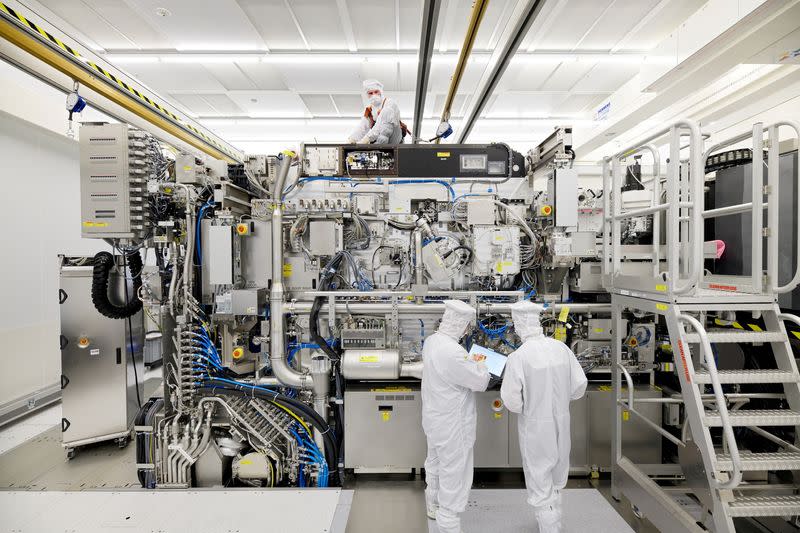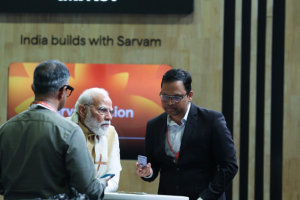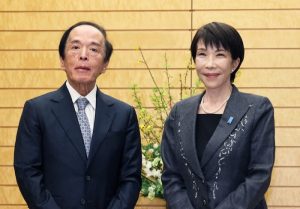Two major companies that make computer chips expect sales to China to ramp up later this year, despite US export controls on advanced chip technology.
Remarks by Dutch lithography giant ASML Holdings and the California-based Lam Research – about the strong demand for less-advanced chips like those used in electric vehicles – indicate that China may still remain a key customer for the sector this year.
The companies reported quarterly earnings that beat analyst expectations, though Lam’s sales were lower than a year ago because of a downturn in the memory market.
Both also said they expect sales to Chinese companies to increase in the coming months despite the US imposing sweeping restrictions on China’s semiconductor sector in October, because Beijing has been using American chipmaking technology to modernize its military.
ALSO SEE:
US Has No Plan to ‘Decouple’ with China, Yellen Says
Chips needed for EVs, phones, PCs
Lam is subject to the US export restrictions, and ASML will face new rules from the Dutch government on China sales later this year. But those rules so far have only affected equipment used in making the most advanced chips.
Lam and ASML said Chinese customers are buying tools for building less advanced chips that go into products like EVs, mobile phones and personal computers amid the country’s drive for more self-sufficient production.
In Lam’s case, it had originally estimated that the China restrictions would cost it between $2 billion and $2.5 billion of revenue in 2023. But the company said it had received a “clarification” of the rules from the US government that chief financial officer Doug Bettinger said during a conference call would allow Lam to sell “a few hundred million dollars” worth of tools that it initially thought were banned.
A Lam spokesperson did not respond to a request for comment on what the clarification from US regulators entailed.
Lam also said that it had received around half a billion dollars in advanced cash payments, primarily from new customers.
“I will acknowledge it’s got a decent Chinese footprint to it,” Bettinger said of the group of new customers.
China orders increase: ASML
ASML said it has a backlog of about 39 billion euros, the equivalent of about two years of tool shipments. Chief executive Peter Wennink told investors during a conference call that Chinese customers working to make less advanced chips make up about 30% of those orders.
That’s a jump from November, when ASML said China made up 18% of its then 38 billion euro backlog.
Wennink said those Chinese chipmakers were focused on markets like electric vehicles, which require many more chips than their combustion-engine counterparts. Most of those chips do not require ASML’s most advanced tools.
“This is where … the mature semiconductor space is very important and needs to grow. And this is where China is very strong,” Wennink said.
Later this year, ASML will have to start applying for Dutch export licences for what are called immersion deep ultraviolet lithography machines (DUV) for shipment to China after the US, Dutch and Japanese governments agreed to begin regulating the tools.
They are not ASML’s most advanced machines but are still close enough to its state-of-the-art machines to make powerful computing chips and were previously not restricted by export rules.
Wennink said ASML expects to sell about 93 immersion DUV machines this year, after several years of strong demand. They are cheaper than its most advanced systems but still cost tens of millions of euros each.
- Reuters with additional editing by Jim Pollard
ALSO SEE:
ASML Suppliers Plan to Cut China Exposure As Chip War Heats Up
ASML in the Centre of the Chip War
Dutch Set to Curb Exports of Key Chipmaking Machines to China
Chip Executives Replace Pony Ma, Jack Ma at Key China Meet
























